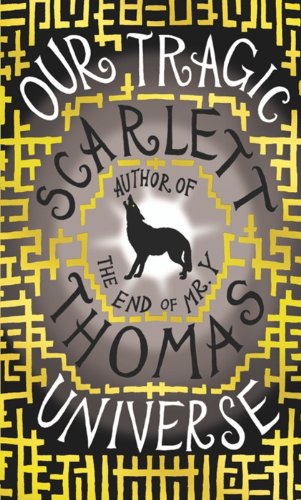[Chekhov] wasn't bothered about the meaning of life in general, but life as it is lived, He was more interested in what people around him said and did. He was obsessed with the detail of life. Tolstoy always saw his own writing as "teaching" and had his breakdown partly because he was so anxious that he didn't have anything to teach. But Chekhov only ever saw his own writing as the formulation of questions, and so didn't need to have a crisis about it.While I first found the meandering plot, or lack of plot, distracting, at some point I was drawn into the bleak and hopeful world without noticing. It was one of my favorite reads this year.
Saturday, December 18, 2010
Our Tragic Universe
After finishing this novel, I was left with that empty feeling one feels after immersing oneself unintentionally into another world. Our Tragic Universe is at once complicated and uncomfortably familiar. The characters are well-rounded, with both likeable and eye-rolling qualities in spades, and their relationships with one another reflect all the intricacies and redundancies and paradoxes we experience in our own lives. The book explores many different concepts, our relationship with stories and fiction, the structure and lack of structure in meaningful stories, paradoxes and 'storyless stories' or metafiction. This novel is all of those and none of those at once. Thomas often discusses Tolstoy and Chekhov, admiring both, and their differences:
Subscribe to:
Post Comments (Atom)

No comments:
Post a Comment